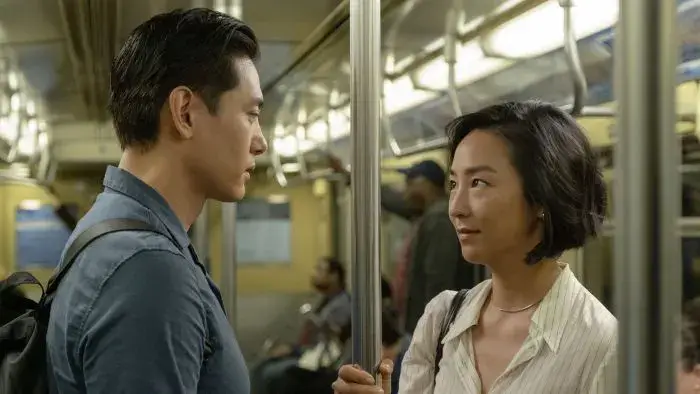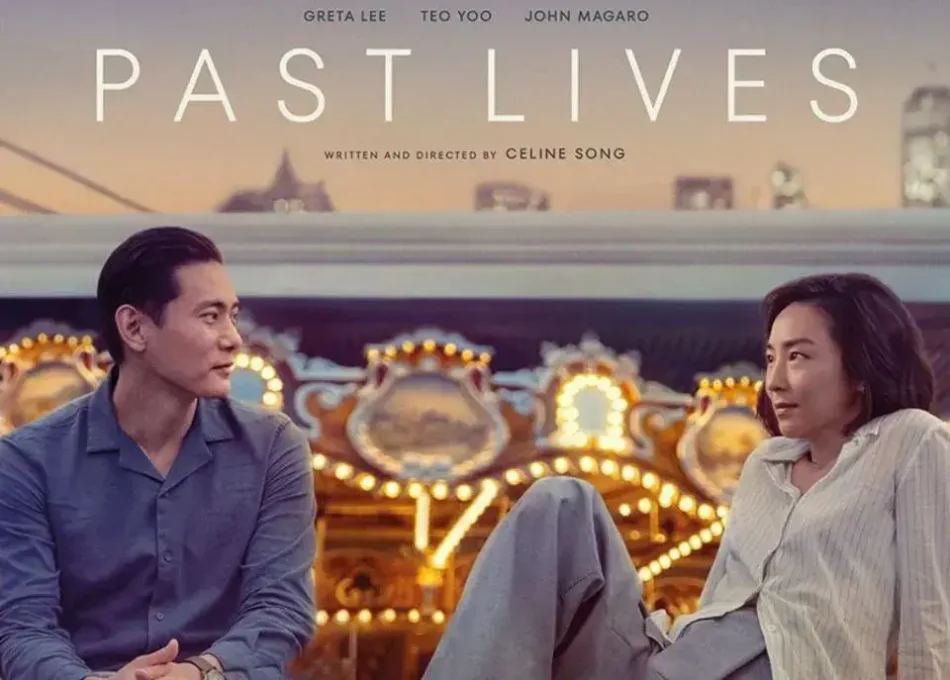(may contain spoilers)
Douban rating: 7.7
Director: Celine Song
Starring: Greta Lee, Teo Yoo, John Magaro
Douban Comments: “One interesting thing about culture is that the American husband feels like his Korean-American wife is closer to Korean men. At the same time, the childhood friend in Korea feels that the girl he liked when they were young is now closer to her American husband after she moved away. But in reality, there’s always a bit of a gap between these three groups, and they can never fully understand each other. What’s touching, though, is that even with this gap, love is still love, and they will still wish the best for the person they love.
Another point is that everyone probably has a childhood friend they liked when they were young, but that 12-year-old version of themselves is gone. However, the love they felt was real.”
“It seems like the male lead is more of a symbol of the female lead’s East Asian identity. The female lead has immigrated twice, so it’s impossible for her to abandon everything and return to her homeland – she even rushed into marriage early just for a green card. But her original culture is always there, and when she does encounter it again, she feels comfortable. The male lead really embodies the East Asian mentality. We East Asians can sit on a crowded subway without our hands touching by even 0.001 millimeters, gaze deeply into each other’s eyes for 108 minutes before parting, and hold on to memories of our first love for over 20 years. We smile bitterly when talking about unpaid overtime, pointing to our heads and saying, ‘I’m mentally strong’. There’s a certain quiet suffering in being East Asian.”

“This movie is an expected A24-style film that feels a bit boring for the first two-thirds, but it ultimately hits on some deep emotional pain. I see Hae Sung not as a specific person, but as a symbol of the pull of one’s homeland. In the journey of immigration, the homeland is like a childhood love that provides comfort during loneliness, repeatedly calling you to return, imagining a possibility of rebuilding a closer relationship, and suggesting that your connection is more genuine and profound. Because of this, immigrants must repeatedly say goodbye to their homeland throughout their lives, and each goodbye brings pain.”
“The first half of the movie feels a bit cliché until the female lead reconnects with the male lead after 12 years. She knows they won’t give up their lives for each other, and in a breakup video, she says, ‘I immigrated to New York twice to live my life, not to think about how to get on a flight back to Seoul’. That really moved me.
Twelve years later, she hasn’t achieved the Nobel Prize she dreamed of as a 12-year-old, nor the Pulitzer Prize she aimed for at 24. Instead, she married an American writer and even rushed into marriage for a green card. Ultimately, fate makes us very ordinary people. Years later, I wonder if we might regret not being together. The movie provides an answer: ‘I love you’ means loving that ambitious, brave part of you who would leave everything behind. The time we missed can’t be reclaimed, and there’s no future to look forward to. So, when we meet again in a foreign land after 24 years, we can’t help but dream about our past connection and entanglements.
The film is very sincere, capturing that stubbornness and determination, and it made me cry.”








